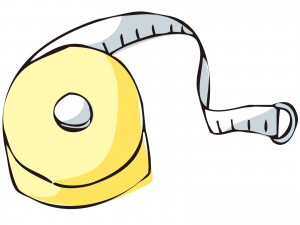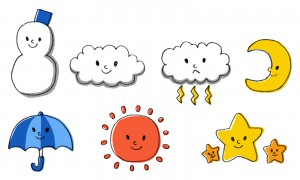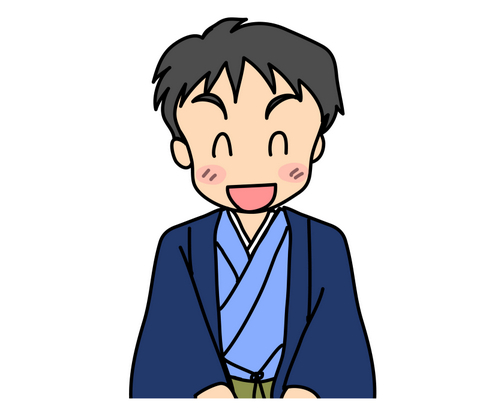When you start learning Japanese, you first learned the phrase; よろしくお願いします as a component of introductions like “nice to meet you”. However, once you come to Japan, you will realize that よろしくお願いします is often used in different contexts and then you may start wondering whether the meaning is really “nice to meet you”? The answer is unfortunately no. There are a lot of other usages. In this article, you will master what よろしく means.
What よろしく Really Means Explained by Native Speakers
Analysis of よろしく
The origin of よろしく comes from the phrase; よろしい which means “to accept”. And when people make a request for acceptance, people said よろしく as “please accept”. Also, よろしい started being used like this, 「ご都合のよろしい時に」, meaning “when it is convenient for you” and today よろしく can sometimes indicate “something good”. Please note: this is just a basic idea about よろしく. You will learn the practical meanings below.
When it comes to how to use it, it can be divided into three ways; general よろしく (1), noun + よろしく (2), and よろしく + verb (3). よろしく itself doesn’t have a polite form, but we can express that by adding お願いします. The first usage has multiple meanings, which may make it difficult at first to use. Apart from this, we think that using よろしく is not so complicated.
When it’s Appropriate to Use よろしく
Usage (1) : General よろしく
This can be used in various situations and might make you confused. However, once you grasp the concept, it will become a very useful expression. Let’s go over them one by one.
When You Meet People for the First Time
One of the most common introductions in Japanese is like this, 「はじめまして。Nameです。よろしくお願いします。」. In this context, よろしくお願いします could be translated as “nice to meet you”. In a casual tone, you could say 「Nameです。よろしく。」, please be careful however self-introductions are hardly so casual.
At the End of Self-introductions
As a closing phrase, Japanese people often say 「これからよろしくお願いします。」. これから means “after this” or “from now on”. Thus, this can indicate something like “I hope we will have a good relationship”. In English, “it was nice meeting with you” can be the translation in this context.
When You Start Doing Something with Someone
If you are volunteering for an organisation, during the beginning the organizer can say, 「今日はよろしくお願いします。」 meaning, “thank you very much for coming today”. If you have a sport game, during the beginning you can say 「今日はよろしくお願いします。」 which means, “let’s have a good game” or “let’s do our best”. 今日は can be replaced with other phrases. For example, when it is fixed to do something tomorrow, you can say, 「明日はよろしくお願いします。 」 meaning, “I’m looking forward to (doing something) tomorrow”. When you do something with someone for a certain period, you can say, 「これからよろしくお願いします。」 which can be translated as, “I’m excited to work with you”. These are also often heard.
When You Make a Request and Express Your Appreciation
If you request your boss or a superior person to do something, you should say 「よろしくお願いします。」 meaning, “I appreciate your help”. Depending on how formal you want to be, you can add some phrases in front of that such as, 「お手数ですがよろしくお願いします。」. This means, “sorry to trouble you, but …” and 「お忙しいと思いますがよろしくお願いします。」 which means, “I think you are busy, but …”. In a casual tone, for example between friends and from superior people to inferior people, you can say 「これやっておいて。よろしく!」meaning, “please finish this. I’m counting on you!”
As a Starting Sign
If you have a meeting with someone, at the beginning you can say 「それではよろしくお願いします。」 or 「では始めましょう。よろしくお願いします。」 meaning, “let’s get started”.
As a Customary Greeting
At the beginning of the new year, Japanese people always say 「明けましておめでとうございます。今年もよろしくお願いします。」 which means, “happy new year. I hope we will have fun together”. In business situations, as a closing phrase, 「今後ともよろしくお願いします。」 is often used. 今後とも means “from now on” and hence this indicates something like “we hope our relationship will continue for a long time”
[adsense]
Usage (2) : Noun + よろしく
When You Make a Request
This usage is simple and could be literally translated as “please …”, “please take care of …” or “please treat … well”, but it certainly sounds polite. It is often used as a closing phrase when you make a request as follows.
| Japanese | Literal Translation |
|---|---|
| (ご)協力をよろしくお願いします。 | Please cooperate with us. |
| (ご)理解をよろしくお願いします。 | Please be understanding. |
| 明日のミーティング、よろしくお願いします。 | Please take care of tomorrow’s meeting. |
| 来週の授業、よろしくお願いします。 | Please take care of next week’s class. |
| Shop Name (or any tye of establishment) をよろしくお願いします。 | Please treat us (Shop Name) well. |
| 娘をよろしくお願いします。 | Please treat my daughter well. *This is said from a parent to a son-in-low when they get married. |
There is another phrase 頼む which can be used in the same way as お願いする. However, it is used from superior people to inferior people or between friends. Please be careful.
Usage (3) : よろしく + Verb
When You Give Your Regards to Someone
In the usage (3), よろしく + 言う (to say) or 伝える (to tell) is mostly used and could be translated as “please say hello to …” or “please give my regards to …”. This is a kind of greeting. When Japanese people say goodbye, they often add this phrase like this; 「他のメンバーによろしく言っておいて。」 which means, “please tell our other members that I said hello” and 「お父さんによろしくお伝えください。」 meaning, ”please give my best regards to him (father-in-law)”.
| Casual | よろしく言っておいて。 |
| Neutral | よろしく伝えて(ください)。 |
| Formal | よろしくお伝えください。 |
If someone requests for you to give their よろしく (regards) to someone else on behalf of them , you can just say it like this; 「Nameさんが『よろしく伝えてください』と言って(いたよ / いましたよ)。」.
Conclusion
Japan has high-context cultures and hence Japanese language often doesn’t specify the subject or objective in speaking, unlike English. For example, even this kind of an equivocal sentence; 「あれだからあれして。 (because of that, please do that)」can be understood between native speakers. If you look at just the phrase よろしく, nobody can figure out the meanings. However, once it’s in the contexts we mentioned above, the meanings will vary and become a useful phrase to express your feelings in Japanese. You probably don’t have to memorize all of the situations. When you need a clarification, just return to this article and review them.
Thank you for reading. これからもWasabiをよろしくお願いします。
Recommended Links
Complete Explanation: What Does おつかれさま Mean?
How to Make a Phone Call in Japanese
How to Say “Don’t Worry about It” in Japanese

How to Measure Length, Weight and Area in Japanese

How to Talk about the Weather in Japanese






